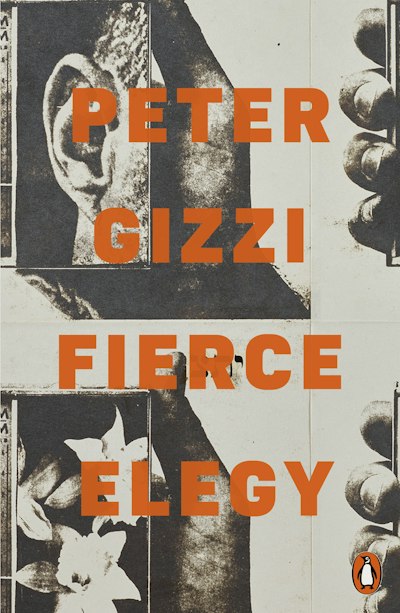Fierce Elegy
- Published: 4 July 2024
- ISBN: 9781802065237
- Imprint: Penguin eBooks
- Format: EBook
- Pages: 80
Lyrics of resignation are juxtaposed with ecstatic lines that reimagine silence as "conversations with the dead". Spare and raked of impurities, these poems reside in an airy purgatory of the soul... In its beautiful, fiery insistence this collection redeclares the elegy as the undying practice of the living
Oluwaseun Olayiwola, Guardian
With his last several collections, Peter Gizzi has distinguished himself as one of America’s finest living poets. In his latest book, Fierce Elegy, we find the poet writing at the height of his powers
James O'Conner, Harvard Review
Gizzi is a master of the elegiac mode. His subject isn’t loss alone, but loss interwoven with afterlife. Shadows, reflections, mirrors, and migrating birds populate his poems, and he weaves one state of consciousness into another, like gossamer. Fierce Elegy is lyrical and transcendent. It is also fierce in the sense that overcoming the broken world is the ultimate act of defiance
Amanda Holmes Duffy, Washington Independent Review
In his latest book, we recognize Gizzi’s distinctive voice, but its melancholy is even more intensified, now almost black as ink. We might call it lyric after catastrophe: the world has suffered blows, shocks, accidents, and destructions and things are no better for things, which are often as not broken, undone, burned, or ruined, "language marching into empire / starving the words." What remains now are no more than "the ruins of anything." And yet the book is a necessary reminder to continue to live, perhaps to love, and certainly to die
Stéphane Bouquet, Chicago Review
For Gizzi, silence lives inside the poems, its words charged by it just as, for Gerard Manley Hopkins, "the world is charged with the grandeur of God." Fierce Elegy anneals its phrases to the clotted silences that surround them, so that rather than a continuous utterance, Gizzi’s rhythms are those of words teased, wrested, chiseled, and siphoned out of the darkness, with all of the nuances of sound those operations imply. Fierce Elegy differs equally from elegies that establish strong ties to a tradition (e.g., Milton) and from those that imagine themselves as wholly anti-elegy (e.g., Plath and Ginsberg). It omits not only proper names but dead addressees altogether, and the affect set in most salient contrast to sadness is actually ecstasy
John Steen, The Poetry Project
Gizzi writes very beautiful poems... He is a real poet: his poems always strive to achieve things only possible in poetry, even when they’re prose. Listen, only, to the staccato gasps of "Of the Air"; a piercing prose sequence with shades of Beckett, it’s the book’s highlight: hard, spare, real. A song of lost love.
Tristram Fane Saunders, Telegraph
This is the poetry of mastery and maturity... How often do we hear people say "There are no words" in the face of intolerable grief? Here Gizzi gives us the words. Words which work towards their own truth, fierce, intense, immediate... I would defy all but the hardest of hearts not to experience the moistening of an eye, and moments of joy along the way. Gizzi’s Fierce Elegy, in its ferocity, is for the Ages
Jeannie MacLean, Dundee University Review of the Arts
A breathtaking book-length sequence in which each line or sentence, often paratactic, non-hierarchical, could be a poem in its own right. As if wordings had been gifted to him out of the ether, one-liners, two-liners coalesce into love lyrics, or a thought enters his head which, step by step, he unravels until a nucleus is reached and pierced
Hannah Sullivan, T. S. Eliot Prize judging panel



